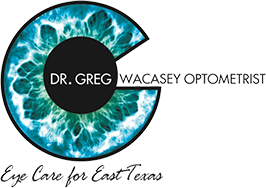
Dry eyes are a common condition that many of us experience at some point. It can be a temporary issue or a chronic one, depending on various factors. When your eyes don't produce enough tears to stay adequately lubricated, or when the tears evaporate too quickly, dry eyes can occur. It's a condition that can cause discomfort, impacting your daily activities and overall quality of life. Fortunately, there are treatments available that can help manage the symptoms of dry eyes.
Dry eyes can be a nuisance, causing persistent discomfort and sometimes making it difficult to carry out everyday tasks like reading or using a computer. In more severe cases, it might even cause blurred vision. It's crucial to find effective relief, and that's where eye drops come in.
The Importance of Choosing the Right Eye Drops for Dry Eyes
Eye drops, also known as artificial tears, work by supplementing your natural tears, helping to lubricate your eyes and alleviate the symptoms of dry eyes. They are a popular choice for managing dry eye symptoms due to their accessibility, variety, and ease of use.
It's important to remember that while eye drops can provide temporary relief, they are not a cure for dry eyes. They can help manage the symptoms, but they don't address the underlying cause. It's essential to consult a healthcare professional if your symptoms persist or worsen despite using eye drops.
Types of Eye Drops for Dry Eyes
There are various types of eye drops available on the market, and choosing the right one can feel overwhelming. In general, they can be divided into two main categories: those with preservatives and those without.
Preservative eye drops are the most common type. They contain preservatives to prevent bacterial growth, allowing them to be used for a longer period once opened. However, some people might find that these preservatives irritate their eyes, particularly if they use the drops frequently or have severe dry eyes.
On the other hand, preservative-free eye drops come in single-use vials and are discarded after use. They are a good option for people who are sensitive to preservatives or who need to use eye drops very frequently.
There are also gel and ointment forms of eye drops, which are thicker and provide longer-lasting relief. However, they can blur your vision temporarily, so they're often recommended for use before bedtime.
Factors to Consider When Choosing Eye Drops for Dry Eyes
When choosing eye drops for dry eyes, there are several factors to consider. First and foremost, you should consider the severity of your symptoms. If you have mild dry eyes, over-the-counter eye drops might be sufficient. However, if you have moderate to severe dry eyes, you might need prescription eye drops.
The frequency of use is another factor to consider. If you need to use eye drops many times a day, preservative-free eye drops might be a better option to avoid potential irritation from preservatives.
You should also consider any other eye conditions you might have. For example, if you have glaucoma, you need to be careful when using eye drops as some can increase eye pressure.
Finally, cost is a factor to consider. While preservative-free eye drops are generally more gentle on the eyes, they can be more expensive than their preservative counterparts.
When to Consult a Doctor for Dry Eyes
While eye drops can provide relief, it's essential to consult a doctor if your symptoms persist or worsen. Chronic dry eyes can be a symptom of an underlying medical condition that needs attention.
Additionally, if over-the-counter eye drops aren't providing sufficient relief, your doctor can prescribe stronger, prescription eye drops. They can also offer other treatment options, such as punctal plugs, which block the tear ducts to keep the tears in your eyes longer.
While dry eyes might seem like a minor inconvenience, they can significantly impact your quality of life if left untreated. Therefore, don't hesitate to seek professional help if needed.
Conclusion
Suffering from dry eyes can be an uncomfortable experience, but the right eye drops can provide significant relief. It's important to understand the causes and symptoms of dry eyes, and consider these factors when choosing eye drops.
For more information on how to choose the right eye drops for dry eyes, visit Dr. Greg Wacasey at our office in Longview, Texas. Call (903) 403-2020 to schedule an appointment today.









